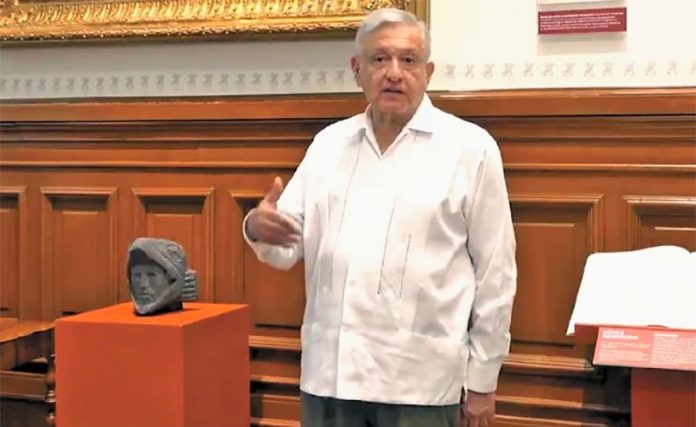Despite Friday’s armed attack on Mexico City Police Chief Omar García Harfuch, President Lopez Obrador promised there will be neither a war against organized crime nor an accord made with criminal organizations.
But analysts doubt the approach will be successful.
The president said on the weekend that his administration will continue with its non-confrontational security strategy, which aims to bring peace and tranquility to Mexico by addressing the root causes of violence, namely poverty and lack of opportunity.
On Friday morning, a highly armed group – allegedly contracted by the Jalisco New Generation Cartel (CJNG) – intercepted and opened fire on the armored vehicle in which García was traveling on Paseo de la Reforma, Mexico City’s most iconic boulevard. The attack left the police chief with three gunshot wounds and killed two of his security detail and a bystander.
In a video message from the National Palace on Saturday, the president acknowledged that it had been a difficult week due to the continuing Covid-19 pandemic, last Tuesday’s earthquake in Oaxaca, and the attack on García. But “the will of the Mexican people to move forward is more powerful,” he said. “Let’s not lose faith. We will win.”
López Obrador conceded that “we’re afraid because we’re human beings” but stressed that he and the members of his government are not “cowards” and won’t be intimidated by violent cartels.
However, the government’s security strategy will not involve “declaring war” on criminal organizations or violating human rights, he said.
“We’re not going to make any agreements with organized crime like in the past. There’s a stopping point, a limit … On one side there’s the authorities and on the other, crime. Hopefully this is understood.”
López Obrador said that his administration is focused on addressing the causes of violence, on giving people – especially young people – better access to education and jobs so that they have options that will steer them away from antisocial behavior.
But two experts raised doubts about whether the government’s approach is enough to quell the violence that has remained stubbornly high in 2020, even as the country faced coronavirus lockdown measures.
The director of the National Citizens Observatory, a nationwide crime watch organization, told the newspaper El Universal that the role of the state is to guarantee citizens’ right to a lawful society, and if it’s not doing that, it’s not fulfilling its function.

“If he [López Obrador] doesn’t want to declare a war, that’s fine and I applaud him, but it should be clear what they are going to do,” Francisco Rivas Rodríguez said.
“Social programs are not crime prevention programs … they have nothing to do with the crisis of violence that we are living,” Rivas added, a claim that puts him at odds with the president.
For his part, prominent security analyst Alejandro Hope said that nobody is asking the government to declare war on drug cartels – a strategy launched by former president Felipe Calderón and perpetuated by his successor, Enrique Peña Nieto, that resulted in more than 200,000 deaths – but nor can it carry on as if the CJNG attack on García didn’t happen.
Hope said the government has an obligation to respond to such a “brutal” attack and charged that it should allocate “extraordinary resources” to “deal with the unprecedented security matter.”
“That doesn’t imply declaring war on anyone,” he said.
Hope, also a columnist for the El Universal newspaper, said the government needs to modify its security strategy in light of Friday’s attack in an upscale Mexico City neighborhood. Another similar attack could pose a risk to governability and national security, he said.
Hope added that now would be a good time for the government to review its security strategy to determine what has been achieved and what needs to be done.
“After what happened on Friday, I believe that you have to start with the assumption that this could be the first but not the last attack against high-ranking officials,” he said.
“The president might not take the decision to declare a war … but the criminal organization [the CJNG] did. He can continue providing scholarships if he likes but the Jalisco New Generation Cartel will continue firing bullets.”
Amid all the negatives associated with Friday’s attack – not least the homicides of three innocent people – one positive for the government is that Mexico’s intelligence services did detect that the CJNG was planning an attempt on the life of a high-ranking official.
In his video message on Saturday, López Obrador thanked Mexico’s National Intelligence Center (CNI) for providing a warning about the attack and announced that the agency had already detained several suspects. He also lamented the deaths of García Harfuch’s security guards and that of a woman driving through the area.
In addition, the president used his message to promote what he characterized as a new and better era for the federal intelligence agency, which he acknowledged was known in the past to spy on people without justification.
“CISEN [the CNI’s predecessor] was used to spy on opponents, to listen to telephone calls,” he said. “This has been stopped.”
Source: El Universal (sp)
